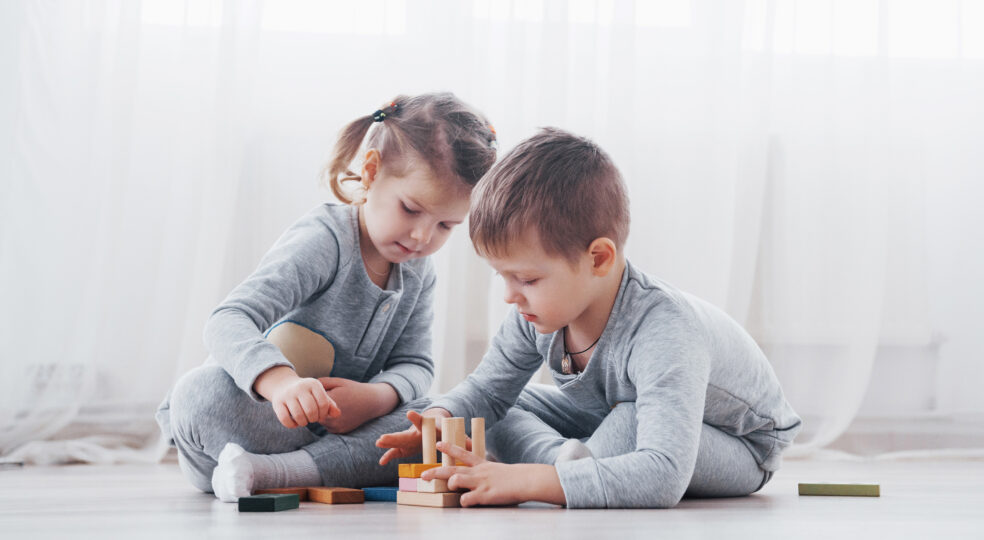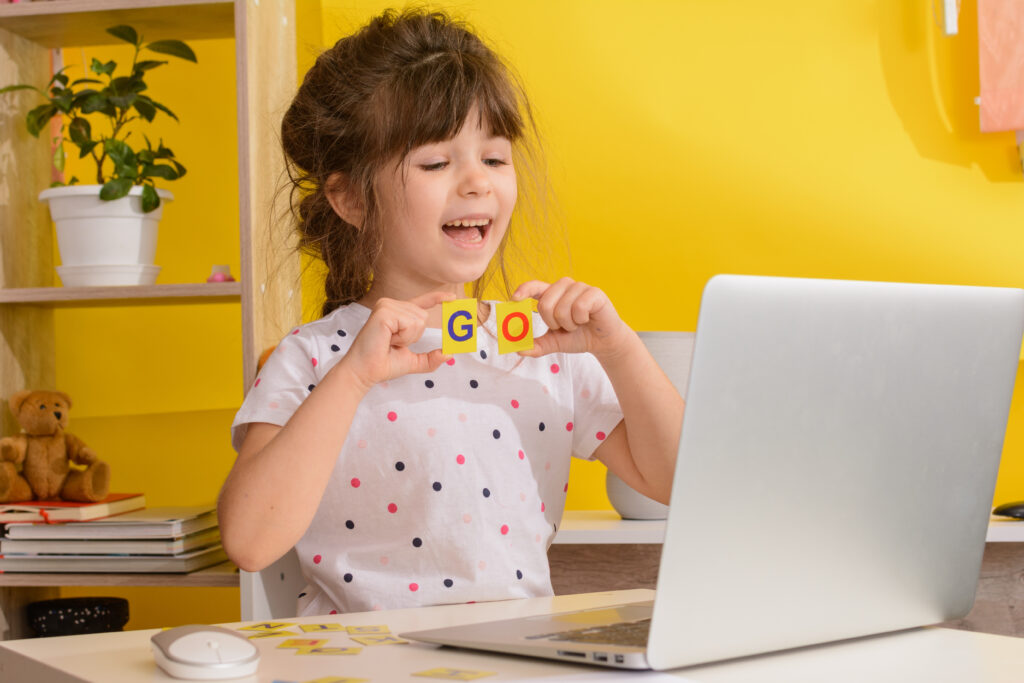
It's often not easy to focus all your attention on one particular thing. Children in particular often find this difficult. They first have to learn to focus fully on a task and block out distractions. You can encourage this with very special concentration exercises for children. Little by little, the little ones will find it easier and easier to maintain concentration and to block out stimuli from the environment for longer and longer.
Do you have the feeling that your child has problems concentrating? Then you should first find out what the cause is. Once you have found out, you can specifically help your child to focus better.
There are countless possible reasons why your offspring might have a lack of concentration. We give you an overview.
Have you ever paid closer attention to whether your child really sleeps enough at night and how high their sleep quality is? Lack of sleep or sleep disorders are common reasons why concentration drops. Even if your child is actually sleeping enough, it doesn't mean that the sleep is also restful and provides enough regeneration.
Children need exercise - of course. Playing and romping is the order of the day, and you should give your offspring the chance to do the same. Children who are not fully occupied often have problems focusing.
Mental exercise is also incredibly important. For example, if your child is underchallenged at school because he or she is already far ahead of his or her classmates, he or she will eventually become bored. He no longer follows the lessons and his concentration wanes.
The same applies, by the way, if your child is overwhelmed. If it's incredibly difficult for him to understand what's being taught and he's always lagging behind, that's demotivating. So what's the point of paying attention? Thoughts then quickly drift away.
Children are incredibly sensitive. Even if you as a parent try to keep your offspring away from, for example, arguments with your partner, conversations about money problems or the like, you will not always succeed. Children perceive much more than parents often believe. This can lead to emotional stress, which can significantly impair concentration.
A healthy and balanced diet is incredibly important not only for physical health, but also for mental health. When it comes to the topic of concentration, B vitamins are particularly important. They can have a positive influence on the central nervous system and thus help to maintain focus.
ADD - attention deficit disorder - and ADHD - attention deficit hyperactivity disorder - often first appear in childhood. Both cause young children to have difficulty concentrating. They are often inattentive and are particularly easily distracted.
Also Behavioral problems can go hand in hand with this, such as aggressive behavior. It is not uncommon for this to be a sign of the child's desperation when he or she does not feel understood or supported. Do you fear that your Child suffering from ADD or ADHD If the patient is suffering from a disease, it is essential to have this clarified by a doctor so that he or she can be helped.
Another medical cause of concentration problems can be perceptual disorders. If, for example, vision or hearing perception is impaired, your child will naturally find it more difficult than others to follow lessons and focus on certain things. In this case, too, medical clarification is urgently recommended.

If the above-mentioned causes for your child's lack of concentration can be ruled out, then you can solve the problem through play. There are various concentration exercises for children and we will introduce you to a few of them below.
This is one of the acoustic concentration exercises for children that requires very close listening. The little ones listen to a radio play or a story being read aloud. Meanwhile, they count how many times a certain word appears in it. The fact that the children follow the content of the story is of secondary importance. The aim is for them to practice concentrating precisely on the words.
You probably remember the game "I'm packing my suitcase" from your childhood. Every time you played it, you improved your concentration. This classic game mainly trains your short-term memory. You don't know it? Then we'll explain it to you again briefly.
The first child whose turn it is thinks of an item to pack in his or her suitcase. So, for example, he says, "I'm going to pack my suitcase and take a ball with me." The next child thinks of another item and adds to it, so then says, for example: "I'm packing my suitcase and taking a ball and a puzzle." It goes on and on like this.
All your child needs is a piece of paper and a pen. Then he picks out an object in the room that looks interesting and observes it closely for a minute. Then he or she tries to trace it as accurately as possible. Afterwards, they compare and your child can enjoy a sense of achievement.
Does your little one like to look at the cloudy sky and discover interesting shapes? This is exactly what you can use for concentration exercises for children! The child sits in the garden or in front of the window during rainy weather and looks at the sky. Once he has discovered a shape, he follows it for as long as possible and then goes in search of the next one.
You can increase the difficulty by having your child close his eyes after he discovers a shape. After ten seconds, he opens them again and tries to find that particular cloud in the sky. This is a representative of relaxation and concentration exercises for children alike, because your offspring will sit very still during this time and can shut down without noticing it.
Sounding woods or a small drum are particularly suitable for this exercise. If you don't have anything like that at hand, then just clap your hands. It is important that you always make a sound in time. Your child follows this beat with its steps. If you stop, the little one also stops and must not move. Concentration is really needed here.
With such concentration exercises for children, especially the hand-eye coordination can be trained excellently. Start with the left hand. With it, your child draws an eight in the air. Then he or she draws a large zero with the right hand. He or she then repeats this process, alternating between the two hands. If this works well, he draws both numbers at the same time.
This is one of the more challenging concentration exercises for children. For this you need a light book. Your son or daughter puts it on the back of his or her hand and tries to balance it as long as possible. It becomes a bit more difficult when the little one walks around the room with it.
You can also make it a contest in which the whole family participates. The first person to make it across the room without dropping the book wins. This makes the exercise even more fun and your child can gain a sense of achievement.
Concentration exercises for kids are a great way to help your offspring finally focus better on certain things. The more senses that are addressed, the more attention the brain pays. Movement in particular is a very helpful factor here. Physical activity satisfies your child's natural urge to move. On the other hand, it also reduces stress - another possible trigger for concentration problems.
It is important that the concentration exercises children are always fun. Remember that these are first and foremost games that are meant to be enjoyable. If your child starts to get tired or simply doesn't feel like it anymore, then give him a break. Coercion will not help anyone at this point. When doing exercises, don't lose sight of the average length of children's concentration span:
Of course, these are only average values. Nevertheless, they give you an important indication of how not to overtax your child.
Memory exercises are particularly suitable for young children. These make it easier for them to remember everyday actions, such as a child-oriented Morning Routine practice in a playful way. At some point, these pass into the long-term memory or working memory and help with concentration.
The older your child gets, the easier it will generally be for him to focus. However, if you observe no improvement or even a deterioration, then concentration exercises are not enough for your child. In this case, you should consult an expert and seek psychological support.
The ability to concentrate is required at any age. It is indispensable at school, during studies or training, at work and in everyday life. So practice early! The sooner you start integrating concentration exercises for children into your normal daily routine, the easier it will be for your offspring to focus. You strengthen their ability to concentrate sustainably and step by step.
Also a Learning Coach can be a valuable help if your child has problems staying on the ball in school. The coach analyzes the exact source of the problem and works with you and your child to find expert solutions. In other words, he or she helps your child to help him- or herself. A learning coach therefore not only writes certain Learning methods but also promotes your child's own responsibility. The goal is for him or her to learn the methods used in the Coaching learns, can apply itself in the long term.

